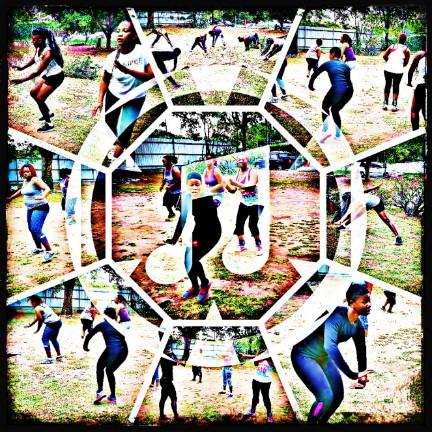Feminismo, maternidad y la lucha por la igualdad de género
«En nuestra lucha por la igualdad, tendemos a olvidar que las mujeres también son madres (si así lo deciden). No deberíamos sentirnos avergonzadas por tener la capacidad de dar a luz a un ser humano. Los derechos de las madres son también parte de los derechos de las mujeres. Ser madre y feminista no es una contradicción», dice Aleksandra Miletić-Šantić, abogada y madre soltera de tres hijas/os.
Aleksandra es oriunda de Mostar, Bosnia y Herzegovina (BH). Actualmente vive y trabaja en Sarajevo como la persona de contacto en BH para el programa Human Rights Education for Legal Professionals [Formación en Derechos Humanos para Profesionales del Derecho] del Consejo de Europa. Aleksandra también es especialista en el seguimiento y evaluación de programas de desarrollo.
El período que va de 1992 a 1995 fue tumultuoso en una Bosnia y Herzegovina devastada por la guerra. Aleksandra trabajó en la estación de radio War Studio [Estudio de Guerra] de Mostar como corresponsal para la Radio-Televisión BH de Sarajevo. Era una estación de radio multiétnica que había sido creada con el objetivo de ser una fuente de optimismo para la ciudadanía y de preservar la vida cultural y artística en una situación anormal, pero que fue atacada y posteriormente cerrada. En 1993, la estación fue destruida para siempre cuando incendiaron el edificio que ocupaba junto al Cuartel General del Ejército de BH.
Su experiencia como periodista y como mujer joven que vivió durante un conflicto armado ha hecho que hoy día Aleksandra sea una ferviente defensora de la consolidación de la paz. En su actual rol como profesional, trabaja en la implementación de la Resolución 1325 del Consejo de Seguridad de las Naciones Unidas (ONU) sobre Mujeres, Paz y Seguridad. Aleksandra ha diseñado y facilitado programas de capacitación sobre género y seguridad y colabora con la Oficina de ONU Mujeres en BH para apoyar a los organismos estatales que se ocupan del género en la implementación de la Resolución 1325 a nivel nacional.
«En un mundo ideal, ser feminista sería simplemente una cuestión de decencia, ya que sería considerado normal que todas las personas tuvieran los mismos derechos y libertades. Esto incluiría todos los derechos—civiles, sociales, económicos y políticos.»
Durante los últimos quince años, Aleksandra ha trabajado para mejorar los derechos humanos en BH y ha sido una de las asesoras pioneras en temas de género para las misiones de la Política Común de Seguridad y Defensa de la Unión Europea (UE). En su rol como asesora en género para la Misión de Policía de la UE en BH, Aleksandra introdujo el plan de acción para la transversalización de género como una herramienta enfocada a mejorar la situación del personal femenino al interno de la organización, al mismo tiempo que incorporaba temas de género en el mandato de la Misión para sus actividades en BH.
El sueño de Aleksandra por lograr un mundo mejor es lo que la impulsa a hacer el trabajo que hace:
«Mi sueño es un mundo donde todas las personas puedan alcanzar su máximo potencial y donde nadie sepa lo que son la pobreza o la inseguridad. Lamentablemente, tantos años después de haber adoptado las herramientas básicas de derechos humanos todavía hay personas que no tienen la libertad de elegir de qué forma quieren vivir.»
Aleksandra es afiliada a AWID desde febrero de 2014.
«Me afilié a AWID porque su misión y la forma en que la implementan coinciden totalmente con mis ideales. También valoro la forma como AWID trata a su membresía, prestando la debida atención a cada una/o, independientemente de quienes sean. Eso hace todas/os sientan que son agentes de cambio importantes.”
Para comunicarte con ella, por favor envía un mensaje a membership@awid.org y/o encuéntrala en nuestro directorio en línea.



